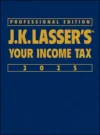Vacation Homes from a Tax Perspective
With summer vacation approaching and mortgage rates low, some taxpayers may be thinking of buying a second home. Others who already own a vacation home may be renting it out for part of the year. How does owning a vacation home affect you tax wise?
Deductions for a vacation home
As in the case of a primary residence, you can deduct all of your real estate taxes on vacation property as long as you itemize. In fact, there’s no limit on the number of vacation homes for which you can deduct real estate taxes. There is no dollar limit on this deduction, although high-income taxpayers are subject to a reduction in the tax break because of the overall phase-out of itemized deductions.
If your vacation home is mortgaged, you may designate one home in addition to your primary residence for which you will take the mortgage interest deduction. The dollar limits on acquisition debt ($1 million) and home equity debt ($100,000) apply per residence, not per taxpayer. Again, this deduction is also subject to the overall phase-out of itemized deductions.
A boat or RV can be treated as a residence for purposes of the mortgage interest deduction provided there are sleeping, eating, and toilet facilities.
Be sure to adequately insure the property. You cannot deduct the cost of this personal insurance. However, if you suffer a casualty loss that is not covered by your policy, you can deduct the loss as an itemized deduction (subject to a $100-per event reduction and 10%-of-adjusted-gross-income threshold). This deduction is not part of the overall reduction in itemized deductions for high-income taxpayers.
Renting out a vacation home
Income from renting out your vacation property is taxable unless the rental period is less than 15 days during one calendar year. So, for example, if you rent out your beach house for a week this summer and have no other rentals for the year, the income you receive is tax free. You don’t even have to report it on your return.
However, in this case, you cannot deduct any rental expenses other than the normal itemized deductions claimed by any homeowner (e.g., real estate taxes, mortgage interest). You have to absorb the cost of advertising, cleaning, and other rental-related expenses.
For a rental period longer than 14 days, your personal use of the property for the year impacts how you account for deductions related to the property:
- If personal use is more than 14 days or 10% of the total days the home was rented for a fair rental value, deductions are limited to the amount of rents received, and are taken in this order from the following 3 categories:
- Mortgage interest, real estate taxes, and casualty losses are fully deductible, even if they exceed rental income.
- Operating expenses (utilities, maintenance) are limited to rental income after reduction for the previous category.
- Depreciation can be claimed only if there is rental income remaining to offset after claiming write-offs from categories 1 and 2.
Note: Use by your relatives is treated as your personal use unless they pay you a fair rent (i.e., the rent that would be paid to you by an unrelated party).
- If the rental period is more than 14 days but personal use is less than 14 days or 10% of the days of rental, then you are viewed as owning rental property (not a personal vacation home). All of the rents are includible in income. You can offset them by rental expenses, including depreciation. However, rental losses (deductions in excess of income) are limited by the passive activity loss rule:
- Current deductions are generally limited to passive activity income; excess losses are carried forward.
- If you actively participate in the rental activities (approve tenants, decide on rental terms), you can deduct up to $25,000 of expenses in excess of income as long as your adjusted gross income (AGI) does not exceed $100,000. The $25,000 loss limit phases out for AGI between $100,000 and $150,000.
Note: The passive activity loss rule does not apply to “real estate professionals.”
Conclusion
Enjoy your summer and your vacation property. Note that vacation property isn’t limited to beach homes and cabins in the woods. The same rules apply to ski chalets and all other types of vacation homes.



